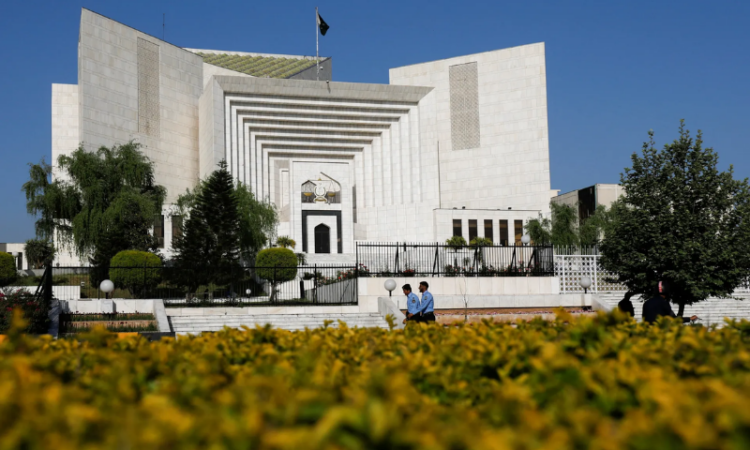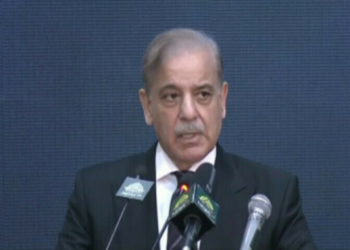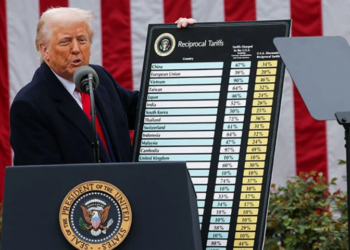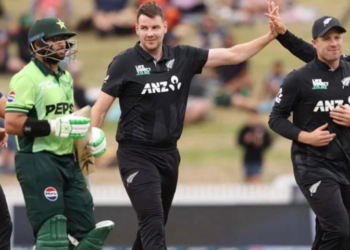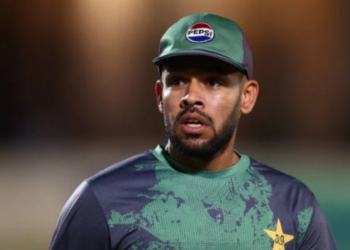Islamabad, January 9, 2025: Supreme Court judges have raised critical questions about the government’s justification for trying civilians in military courts while others involved in the same incidents are being tried in anti-terrorism courts (ATCs).
A seven-member constitutional bench, headed by Justice Aminuddin Khan and comprising Justices Jamal Khan Mandokhail, Muhammad Ali Mazhar, Syed Hassan Azhar Rizvi, Musarrat Hilali, Naeem Akhtar Afghan, and Shahid Bilal Hassan, resumed the hearing on the trial of civilians in military courts.
During the hearing, Ministry of Defence counsel Khawaja Haris argued that the interpretation of Article 233, which pertains to the suspension of fundamental rights during emergencies, was misunderstood. He maintained that fundamental rights could only be suspended under emergency conditions, as was the case during Gen Pervez Musharraf’s tenure.
Justice Muhammad Ali Mazhar countered that the case at hand did not involve the suspension of fundamental rights. He noted that, during Musharraf’s era, rights were suspended entirely, removing even the right to appeal. Justice Aminuddin Khan asked whether an emergency had been declared in the present scenario, to which Justice Mazhar clarified that suspending rights necessitates an emergency.
Justice Musarrat Hilali emphasized that no emergency had been declared, nor were the fundamental rights of the accused suspended when they were placed under military custody. She questioned how the jurisdiction of military courts was determined and what criteria differentiated cases tried in ATCs versus those in military courts.
Justice Mazhar pointed out that suspects from the May 9 incidents were charged under similar FIRs but were subjected to different judicial processes. He questioned the basis for assigning some cases to military courts while others remained with ATCs.
Justice Naeem Akhtar Afghan inquired if any ATC orders had authorized the transfer of suspects to military courts and called for transparency in the process of taking civilians into military custody. Justice Jamal Mandokhail sought clarification on the principles and procedures used to allocate cases to military courts. He questioned whether military courts relied on evidence not considered in civilian courts, citing concerns about inconsistencies in trial outcomes.
Justice Hasan Azhar Rizvi highlighted that past incidents involving terrorist attacks on military installations, including a hijacking plot against an army chief’s plane, were tried in civilian courts. He questioned why the May 9 incidents were treated differently.
Justice Mandokhail suggested that ATCs should be strengthened to handle such cases rather than diverting them to military courts. He emphasized that ATCs operate based on evidence and expressed concerns about the lack of transparency in military trials.
The bench sought copies of the FIRs and ATC decisions that authorized the transfer of suspects to military courts. Justice Afghan disclosed that 103 suspects from the May 9 cases were tried in military courts, while others remained in ATCs, and demanded clarity on the criteria used for such distinctions.
The judges underscored the need for evidence-based and legally sound decisions and emphasized the importance of a clear legal framework to ensure transparency and fairness in the judicial process.
The hearing of the intra-court appeal against military trials of civilians was adjourned until Friday, with further arguments from Khawaja Haris expected.


